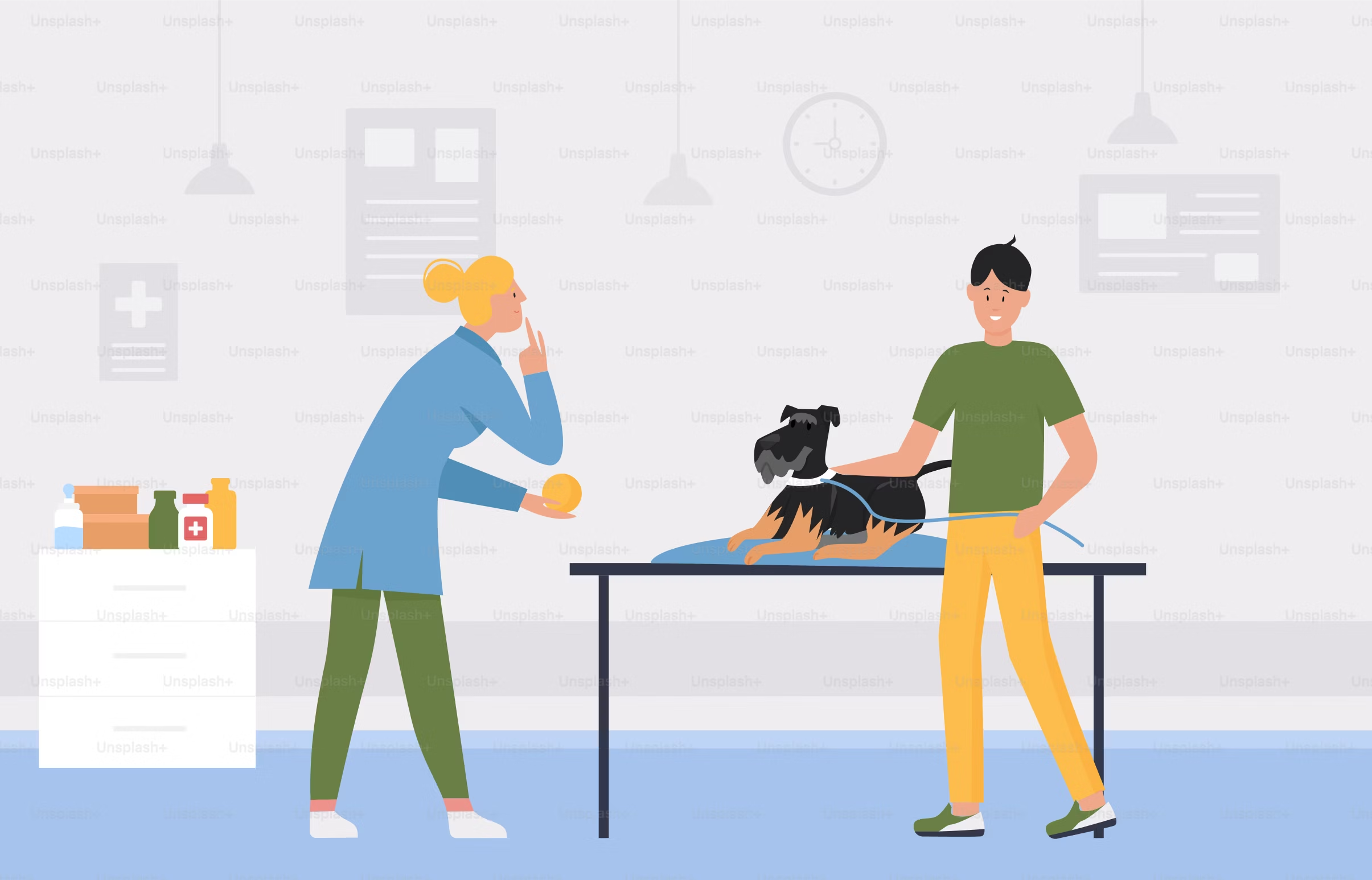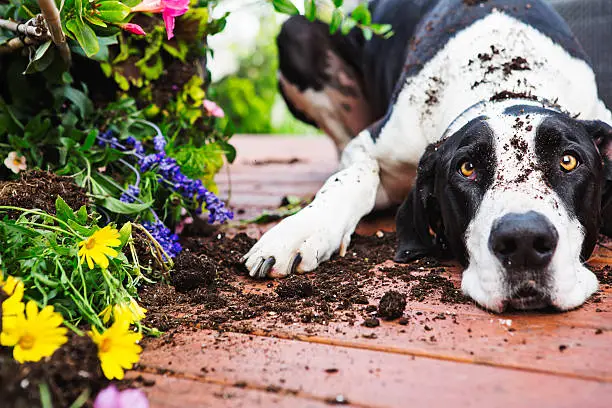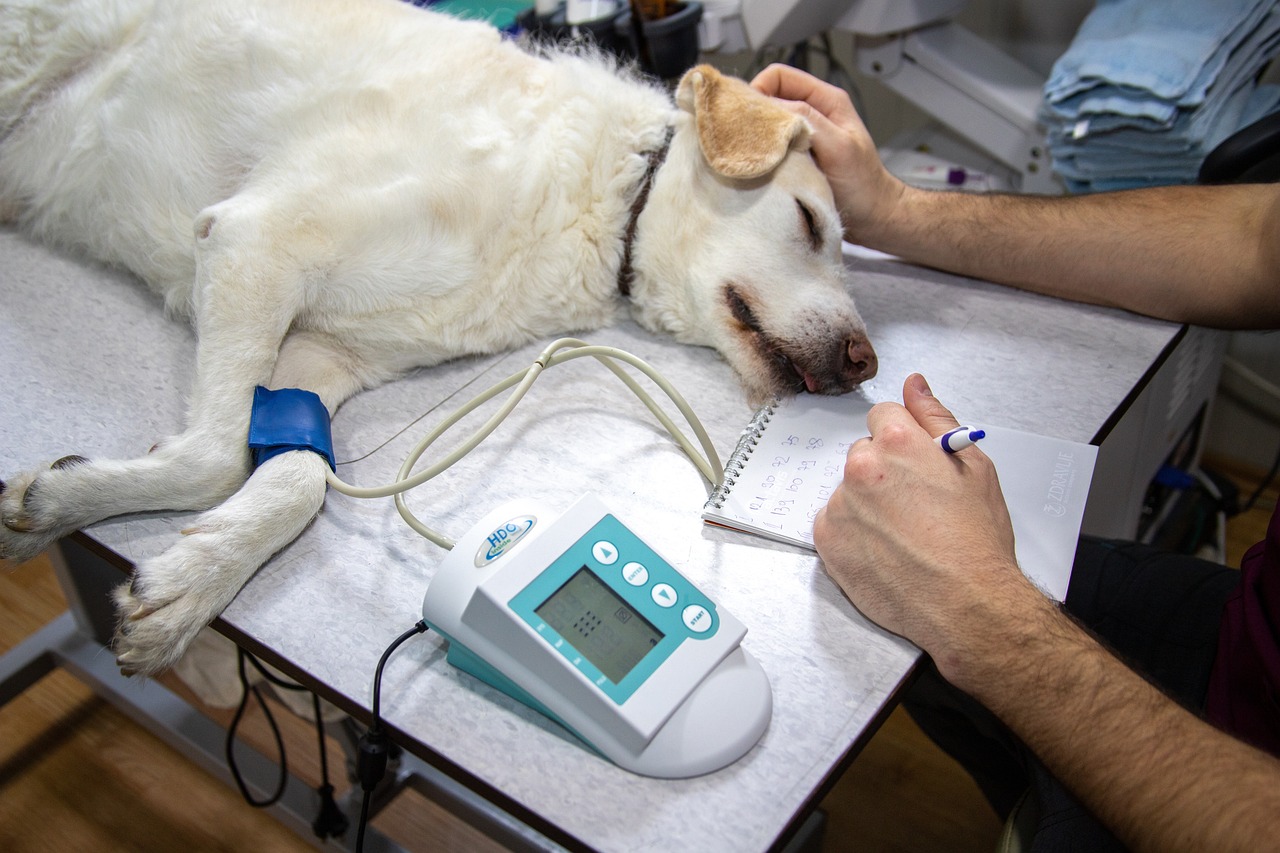Holistic Veterinary Care: A Comprehensive Guide

Holistic veterinary care is an integrative approach to animal health that considers the whole animal—body, mind, and spirit—rather than focusing solely on specific symptoms or diseases. This method combines traditional veterinary medicine with alternative therapies, aiming to support the animal’s overall well-being. In this article, we’ll explore the principles of holistic veterinary care, its benefits, common treatments, and how it can complement conventional veterinary practices.
Understanding Holistic Veterinary Care
Holistic veterinary care emphasizes the interconnectedness of the body, mind, and environment. It seeks to address the root causes of health issues, rather than just treating symptoms. This approach can include a wide range of treatments, such as acupuncture, chiropractic care, herbal medicine, nutrition, and homeopathy.
Principles of Holistic Veterinary Care
- Whole Animal Approach: Holistic care considers the animal’s entire physical and emotional health, lifestyle, and environment.
- Prevention and Wellness: Emphasis is placed on preventing illness through proper nutrition, exercise, and lifestyle choices.
- Natural Healing: Utilizing natural remedies and therapies to support the body’s ability to heal itself.
- Personalized Treatment: Tailoring treatments to each individual animal’s needs, rather than using a one-size-fits-all approach.
- Complementary Therapies: Integrating alternative therapies with conventional veterinary medicine to provide a comprehensive care plan.
Benefits of Holistic Veterinary Care
Holistic veterinary care offers numerous benefits for pets, including:
1. Comprehensive Health Management
Holistic veterinarians take into account all aspects of a pet’s health, including diet, environment, and emotional well-being. This comprehensive approach can lead to better overall health and a more balanced life for your pet.
2. Preventative Care
By focusing on prevention and wellness, holistic veterinary care can help reduce the risk of chronic diseases and improve the quality of life for pets. Regular check-ups and early intervention can catch potential health issues before they become serious.
3. Reduced Side Effects
Many conventional medications come with a risk of side effects. Holistic treatments, such as herbal medicine and acupuncture, often have fewer side effects and can be gentler on the animal’s body.
4. Natural Healing
Holistic veterinary care supports the body’s natural healing processes. Treatments like acupuncture, chiropractic care, and herbal remedies can help stimulate the body’s innate ability to heal itself.
5. Enhanced Quality of Life
Holistic approaches often focus on improving the overall quality of life for pets, addressing not only physical ailments but also emotional and behavioral issues.
Common Holistic Veterinary Treatments
Holistic veterinary care encompasses a variety of treatments and therapies. Here are some of the most common ones:
1. Acupuncture
Benefits: Acupuncture involves inserting thin needles into specific points on the body to stimulate healing and relieve pain. It can be effective for treating conditions such as arthritis, allergies, and digestive issues.
Usage: Acupuncture is typically performed by a certified veterinary acupuncturist. The treatment is generally well-tolerated by pets and can be used alongside conventional treatments.
Risks: When performed by a trained professional, acupuncture is considered safe. However, improper needle placement can cause discomfort or injury.
2. Chiropractic Care
Benefits: Chiropractic care focuses on the alignment of the spine and joints. It can help alleviate pain, improve mobility, and support overall health.
Usage: A veterinary chiropractor performs adjustments to correct misalignments and restore proper function. This can be particularly beneficial for pets with musculoskeletal issues.
Risks: Chiropractic care should only be performed by a licensed professional to avoid potential injury.
3. Herbal Medicine
Benefits: Herbal medicine uses plant-based remedies to treat various conditions. Herbs can provide anti-inflammatory, antimicrobial, and immune-boosting effects.
Usage: Herbal remedies can be administered in various forms, including teas, tinctures, and capsules. They can be used to treat a wide range of conditions, from skin issues to digestive problems.
Risks: Not all herbs are safe for pets, and improper dosing can cause adverse effects. It’s essential to consult with a veterinarian knowledgeable in herbal medicine.
4. Homeopathy
Benefits: Homeopathy involves using highly diluted substances to stimulate the body’s healing processes. It can be used to treat chronic conditions, allergies, and behavioral issues.
Usage: Homeopathic remedies are typically administered as small pellets or liquids. They are tailored to the individual animal’s symptoms and overall health.
Risks: Homeopathy is generally considered safe, but its efficacy is a topic of debate within the veterinary community. It’s crucial to use these treatments under the guidance of a qualified veterinarian.
5. Nutrition and Diet
Benefits: Proper nutrition is a cornerstone of holistic veterinary care. A balanced diet can support overall health, prevent disease, and manage existing conditions.
Usage: Holistic veterinarians often recommend diets tailored to an individual pet’s needs, which may include raw or home-cooked meals, supplements, and specific dietary adjustments.
Risks: Dietary changes should be made gradually and under the supervision of a veterinarian to ensure nutritional balance and avoid digestive upset.
6. Massage Therapy
Benefits: Massage therapy can help reduce stress, improve circulation, and relieve muscle tension. It can be beneficial for pets with arthritis, injuries, or anxiety.
Usage: Professional veterinary massage therapists use various techniques to address specific issues and promote relaxation.
Risks: When performed correctly, massage therapy is safe and beneficial. However, improper techniques can cause discomfort or injury.
7. Aromatherapy
Benefits: Aromatherapy uses essential oils to promote physical and emotional well-being. It can help with anxiety, skin conditions, and respiratory issues.
Usage: Essential oils can be diffused, applied topically (diluted), or used in baths. It’s essential to use pet-safe oils and follow proper dilution guidelines.
Risks: Some essential oils can be toxic to pets, and improper use can lead to adverse reactions. Always consult with a veterinarian before using aromatherapy.
Integrating Holistic and Conventional Veterinary Care
Holistic veterinary care is not meant to replace conventional veterinary medicine but to complement it. Integrating both approaches can provide the best outcomes for your pet’s health.
1. Consult with Your Veterinarian
Before starting any holistic treatments, it’s crucial to consult with your veterinarian. They can help determine the most appropriate and effective treatments for your pet’s specific needs.
2. Comprehensive Treatment Plans
Work with your veterinarian to create a comprehensive treatment plan that includes both conventional and holistic therapies. This approach ensures that all aspects of your pet’s health are addressed.
3. Monitoring and Adjustments
Regular check-ups and monitoring are essential to track your pet’s progress and make any necessary adjustments to their treatment plan. Open communication with your veterinarian is key to ensuring the best care for your pet.
4. Education and Research
Educate yourself about the various holistic treatments available and their potential benefits and risks. Research reputable sources and seek guidance from professionals trained in holistic veterinary care.
Case Studies: Success Stories of Holistic Veterinary Care
Case Study 1: Managing Arthritis with Acupuncture and Herbal Medicine
Background: Max, a 10-year-old Labrador Retriever, was diagnosed with arthritis. Conventional treatments provided limited relief, and Max’s owner sought holistic options.
Treatment Plan: Max’s holistic treatment plan included acupuncture sessions and herbal supplements, such as turmeric and boswellia.
Outcome: Over several months, Max showed significant improvement in mobility and pain levels. The combination of acupuncture and herbal medicine helped reduce inflammation and support joint health.
Case Study 2: Addressing Anxiety with Aromatherapy and Behavioral Therapy
Background: Bella, a 5-year-old mixed breed, suffered from severe anxiety, particularly during thunderstorms. Conventional medications had limited success and caused side effects.
Treatment Plan: Bella’s holistic treatment plan included aromatherapy with lavender essential oil and behavioral therapy.
Outcome: The aromatherapy helped calm Bella during storms, and the behavioral therapy addressed underlying anxiety triggers. Bella’s overall anxiety levels decreased, improving her quality of life.
Case Study 3: Improving Digestive Health with Nutrition and Probiotics
Background: Charlie, a 7-year-old Beagle, experienced chronic digestive issues, including diarrhea and bloating. Conventional treatments provided temporary relief.
Treatment Plan: Charlie’s holistic treatment plan included a tailored diet with high-quality, easily digestible ingredients and probiotic supplements.
Outcome: Charlie’s digestive health improved significantly with the dietary changes and probiotics. His symptoms decreased, and he experienced better overall health and vitality.
Conclusion
Holistic veterinary care offers a comprehensive and integrative approach to animal health, focusing on the whole animal and addressing the root causes of health issues. By combining traditional veterinary medicine with alternative therapies, holistic care can enhance the quality of life for pets and support their overall well-being.
The benefits of holistic veterinary care include comprehensive health management, preventative care, reduced side effects, natural healing, and enhanced quality of life. Common treatments include acupuncture, chiropractic care, herbal medicine, homeopathy, nutrition, massage therapy, and aromatherapy.
Integrating holistic and conventional veterinary care can provide the best outcomes for your pet’s health. Always consult with your veterinarian, create comprehensive treatment plans, and monitor your pet’s progress to ensure they receive the best care possible.
Holistic veterinary care is a valuable option for pet owners seeking a more natural and comprehensive approach to their pet’s health. With proper guidance and a personalized approach, holistic treatments can help your pet lead a healthier, happier life.




